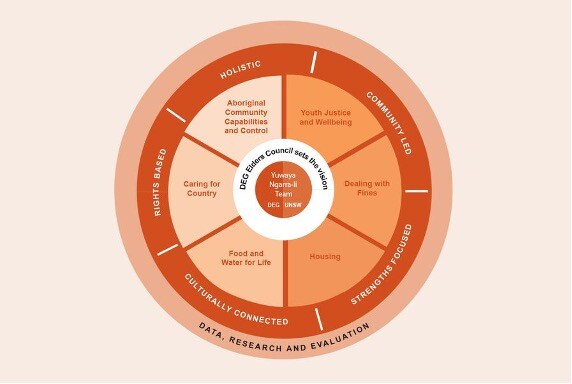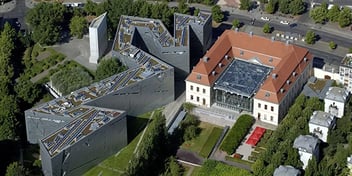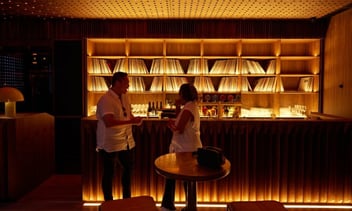Yuwaya Ngarra-li’s Circular and Community-Led Process
Design is about process, but community-based design often fails to follow through, becoming a tick-box exercise.
An effective design process is iterative and involves the people who will use the space. This process has been demonstrated by Yuwaya Ngarra-li, a partnership between the Dharriwaa Elders Group (DEG) and UNSW. This partnership aims to enhance the wellbeing and environments of the Indigenous community in Walgett, NSW, emphasizing community control, reduced justice system contact for youth, and improved food, water, and housing security. In a recent article for Architecture AU, co-authored by Yuwaya Ngarra-li partnership members including Samantha Rich, they generously share their toolkit for robust community-led design.
Let the community lead. Don’t assume you know the need and how to solve every problem. Listen and respond directly to what is needed.
Develop partnerships based on trust. Allow for equitable and genuine relationships to form and collaborative knowledge exchange.
Think holistically. Designers need to work, design and act in relational ways, understanding the importance of a circular process.
Make meaningful design decisions. Decisions that are based on community needs and requirements. Listen and carefully consider your design decisions.
Work reciprocally. Embed protocols into the process, deliver community assets and build capacity.
I’ve linked the full article below and recommend you give it a read. It’s full of important learnings for all architects and designers in Australia. Link [How can we make design decisions meaningful?]




-1.png?width=352&name=Image%20(1)-1.png)

